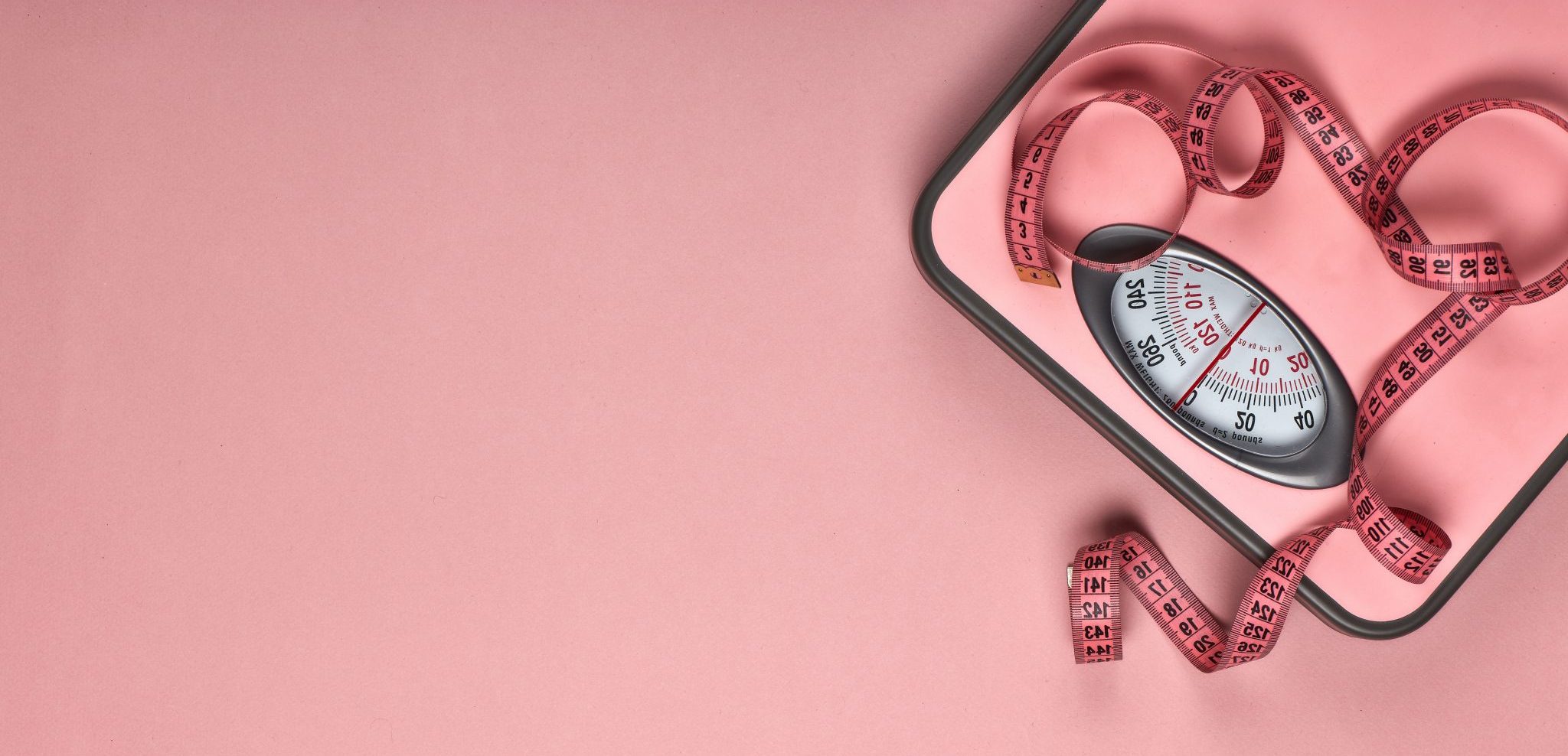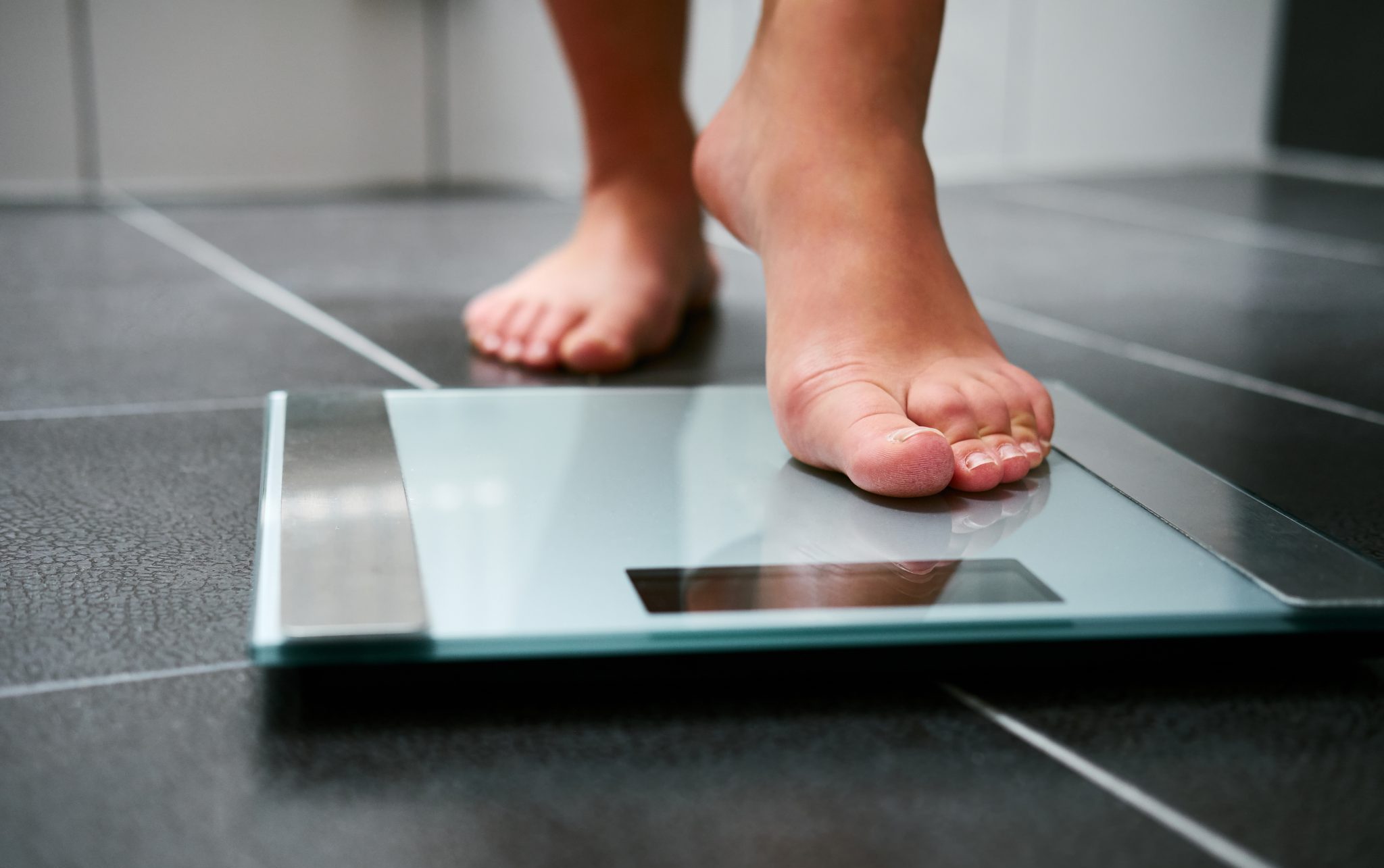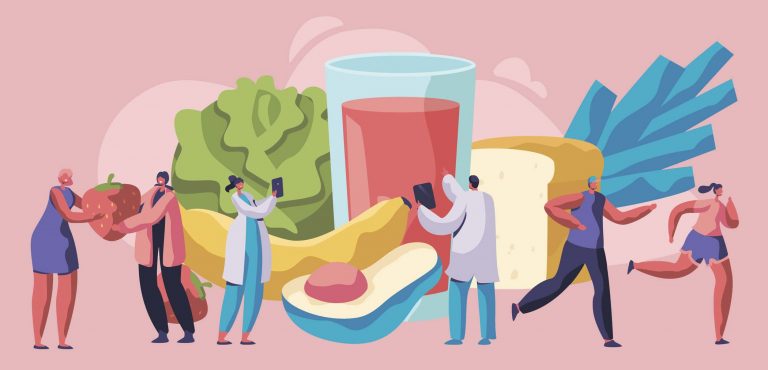When we go online, we’re flooded with information on how to lose weight, how to diet, and what exercises to do to drop those pounds, but for some of us, the question is quite the opposite – how to gain weight? If you’ve ever been told this is something you need to do, you probably panicked and wondered exactly how to accomplish this impossible goal. If you’ve told others you’ve perhaps got the response “it must be so easy” – eat what you want, don’t exercise, and you’ll increase your weight quickly. Job done! But this is not a solution…well, it is one solution, but not one that will do any good for your health. That’s why we’ve taken the time and pulled together our knowledge and experience to come up with the best guide for you on why and how to gain weight the fast and healthy way.
We’ll cover the reasons behind low body weight, why it’s bad for your health and how, why it happens and what you can do about it. Depending where you are on your journey, feel free to skip ahead to the part that calls to you.
Low weight – how can that be bad?
Since our early years, we’ve been led to believe that thin is king, that we should aspire to keep our weight as low as possible. And, this is especially true for those of us who grew up in the era of the waifs – those impossibly tall and thin supermodels who portrayed all our 1990s ideals, despite being quite underweight.
Even though the ‘heroin chic’ look has fallen out of fashion, the trend for skinny is still with us; however, thankfully, nowadays, it has taken a healthier turn to focus on fitness.
Let’s be clear – fit is good; being too skinny is bad.
Hitting the too low category in the weight section can be as bad as those too high numbers, and that means it’s time to make some changes to both your diet and exercise routine.
Depending on why you’re sitting in those lower digits, being underweight can cause numerous issues for your health:
- You may be malnourished and lacking in certain vitamins and minerals, making you more prone to illness such as catching a cold often or even longer-term effects such as diabetes.
- You may experience fertility issues, causing issues conceiving and at risk of premature labor. This might be apparent through missed or irregular periods or even their total absence.
- You may experience growth and development issues, especially if you are going through your teenage years, causing underdeveloped breast tissue, short height, and hormonal changes.
- You may feel exhausted all the time and unable to concentrate.
- Your looks may suffer – hair may be lackluster; nails brittle and teeth will begin to have problems.
These are some of the most common issues of low weight; you may experience all of them, some or none at all depending on the reason you’re underweight.
But how do you know if you’re failing to meet the weight requirements? How thin is too thin?
When it comes to figuring this out, we generally use a little tool called BMI (body mass index). This tells you if your weight is in correct proportion to your height. The formula goes a little something like this:
Weight in pounds (lb.) / [height in inches (in)]2 x 703
Or
Weight in kilograms (kg) / [height in meters (m)]2
But if math isn’t your strong point, you can also use this calculator to get your result quickly.
- Underweight = Less than 18.5
- Normal range = Between 18.5-24.9
- Overweight = Between 25-29.9
- Obesity = 30 or greater
BMI isn’t always the best indicator of your health as it fails to take into account factors such as muscle mass. However, as a general guide to whether or not you weigh too little, it can be a helpful tool.
Why are you underweight?
Knowing why you’re falling below the recommended number is vital to gaining back those pounds. Here are some of the top reasons:
Physical illness
After a bout of the flu or virus, you might have lost a bit of weight; luckily, you’re likely to regain this naturally when you feel a little more like yourself. Other illnesses are not so easily managed. Weight loss can come from thyroid problems, diabetes, or even cancer, all requiring treatment from a doctor, or it can be from a food allergy or intolerance such as celiac disease, meaning (after consultation and diagnosis) you will need to follow a stricter diet to keep those pounds on.
Mental illness
Anorexia, bulimia, and other specified feeding or eating disorder (OSFED) are all eating disorders that may cause weight loss and trouble keeping the pounds on. But, it’s not the only mental illnesses that play a role in weight; depression, OCD, schizophrenia, among others impact the ability to take care of oneself, and that means feeding too. If this is your case, you need to see a physician to treat the underlying cause.
Doing too much
Can’t sit down? Find yourself running from meeting to meeting, event to event, without time to stop for lunch? It’s no wonder those pounds are falling off! You’re simply too busy, between the extra exercise and lack of time to eat, your body is burning through its supplies with no backup, so aside from our eating guide below, you need to take some time to sit down and eat that breakfast, lunch and dinner.
Metabolism
Some people just seem to burn through those calories like they were nothing at all. No matter how much you place it in front of them, it just seems to disappear with no after effect. If this is you, count yourself blessed…but take care; you still need to ensure you’re getting enough to get you through the day. We’ll help you out with some natural ways to gain weight with a fast metabolism below.
Genetics
Perhaps you were born with the genes of a supermodel, lucky you. As long as you’re healthy in other ways and have the tests to prove it, there’s no real reason to gain weight. However, if you’re looking for a fitness boost…keep reading.
With so many reasons why those pounds could be falling off, what way is best to try to put on weight?
Best ways to gain weight naturally
If you’re struggling to put on a few, then you’re probably sick and tired of hearing, “how easy it must be.” Don’t listen, it’s not, and you’re not alone in thinking that.
Of course, gaining mass can be simple – eat junk food, do nothing, and more likely than not (even if you have a high metabolism) those digits will creep up. Your health, on the other hand, will take a nose dive.
And that is not an ideal outcome. Weight-gain isn’t just a food issue; we believe that the best way to be healthy is an overall approach, that’s why, right now, it’s time for a lesson using various techniques including fitness and diet to gain weight naturally and healthily.
Lesson #1
For just a moment, forget about that number on the scales. Before you get started on your journey, it’s time to take a little time for you. Recognize that often as the numbers creep up, you may experience anxiety and worry, and toss these fears out the window. We know it’s difficult, but this isn’t about the digits; this is about your health. Use daily mantras to focus on fitness and well-being and as counterproductive as it sounds, don’t think too much on your weight.
Lesson #2
Make a routine and stick to it. We often prioritize deadlines and work over what’s most important – our health. It’s time to change that. Develop a schedule that allows you to realistically complete your objectives but doesn’t jeopardize your well-being. This can mean occasionally learning to say no or taking that lunch hour to yourself and have a delicious and healthy meal.
Lesson #3
Focus on fitness. Working out gives you a mental boost and more likely than not you’ll finish a workout happier…and perhaps hungrier too. Gaining weight for men and women naturally should include an exercise routine that works to build your muscles. This works to ensure your body gains healthily (not too much fat), and you remain strong. Try focusing on strength training exercises such as squats, deadlifts, pull-ups, planks, etc. that build your muscles for the best results.
Lesson #4
Last but not least comes food. No weight gain program would be complete without the right diet. Finding the perfect foods to eat to gain weight for both men and women is a challenge – there’s no need to reach for that takeaway, no need for mountains of chocolate or chips (although a little now and again won’t hurt); here’s what you actually need:
- Good wholesome meals – we love baked potatoes with a variety of filling, lots of fruits and vegetables, roasted meats (for those meat eaters) and tofu (for those vegetarian/vegans among us). Don’t be afraid to add a little extra olive oil or dressing on the side, food should be interesting, so enjoy it. Keeping your diet as natural, healthy, and tasty as possible helps you to sustain it in the long term.
- Snack on the regular – roasted nuts, chickpeas and dried fruit make the perfect companions for a mid-morning, mid-day and mid-evening snack. And we recommend all of these. You can also try some apple slices and peanut butter, or peanut butter, Nutella and banana for a tasty treat. Smoothies are also a great way to add some calories while getting your daily vitamins and minerals. The one rule…don’t let snack replace meals.
- Forget about those empty calories – fizzy drinks, sweets, chips, these are empty calories that are doing you no good, focus on what matters – nutrition. But that doesn’t mean you can’t have a treat once in a while too.
Weight gain isn’t easy; there are psychological factors at play that led us to believe it’s wrong, put those aside and focus on your health instead.









